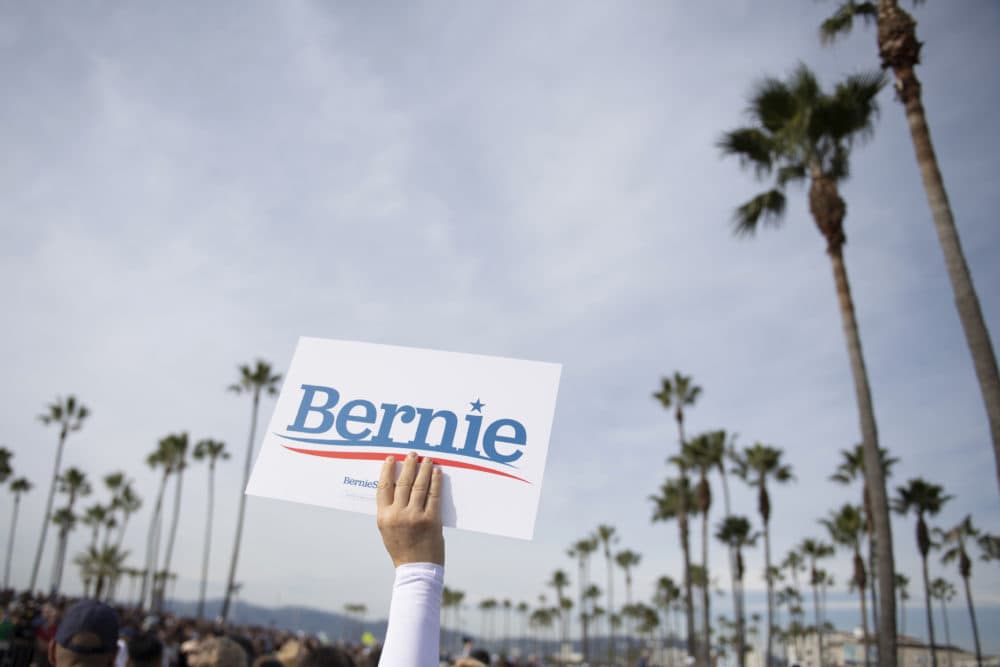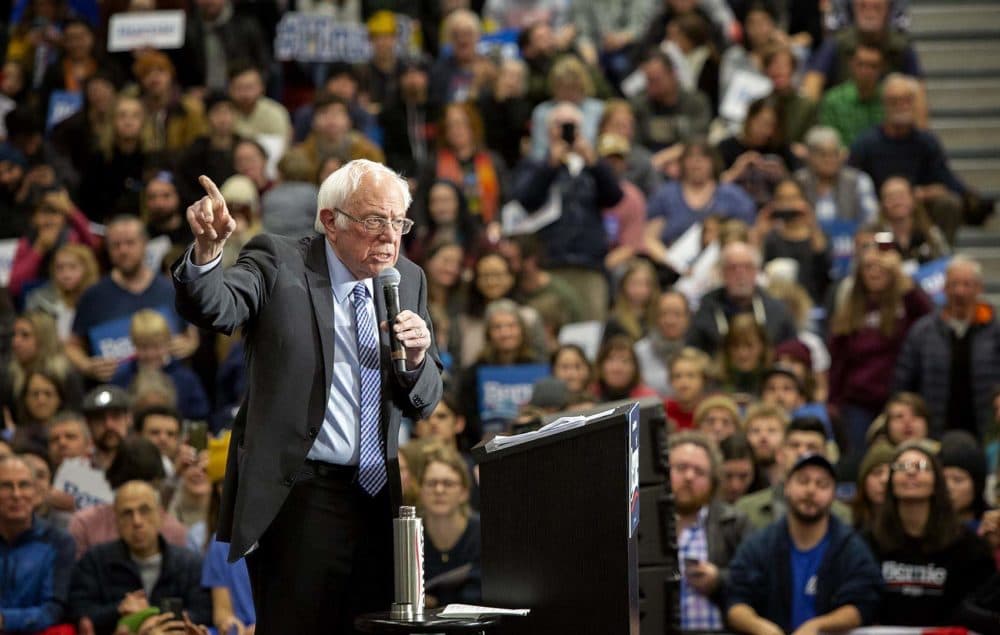Advertisement
Commentary
The Danger Of 'Bernie Or Bust'

Last week’s Iowa caucuses predictably became an incubator for online rumors and mutual accusations within the Democratic party, a pattern we cannot afford to repeat in New Hampshire.
The failures in timely and accurate tallying of the Iowa results seem to be a product of several factors -- new and more complex reporting requirements (which were implemented in response to the Sanders’ campaign’s entirely legitimate demand for greater transparency), a failure to collect the “presidential preference cards” from every caucus-goer that serve as the backup to the precinct managers’ worksheet tallies, and yes, introduction of Shadow, a new app that had been inadequately tested.
But rather than take a holistic view of the problem, a small but vocal handful in the extreme fringe of the Sanders (and Gabbard) base jumped straight to the conclusion that the vote had been rigged by Buttigieg (or the DNC, or Hillary) through Shadow.
Desperately wanting change, not really believing it’s possible, they’d rather just blow the whole thing up.
First came the rumor that Buttigieg was an owner or investor in Shadow. When that was disproven (though his campaign was a client, along with the Democratic parties of Iowa and Nevada), some of Bernie’s fans began Tweeting this passage from an article in The Intercept about Tara McGowan, a Democratic party operative and CEO of the firm that invested in Shadow: “McGowan is married to Michael Halle, a senior strategist with the Buttigieg campaign.” But they failed to quote the concluding sentence in that paragraph: “There is no evidence any preference of candidates had any effect on the coding issue that is stalling the Iowa results.”
When challenged on his assumption that this fiasco was the product of a DNC conspiracy, a guy I know — a perfectly nice guy — responded “Given the DNC’s open hostility to Sanders, I think it is entirely appropriate to assume the worst, in whatever form it arrives.”
Unfortunately, he didn’t seem to wonder why, if the Democratic National Committee rigged the vote, its favorite candidate, Joe Biden, came in an anemic fourth. But sadder still is his readiness to assume the worst.
I don’t deny that like the RNC, the DNC is occupied by professional political operatives who make their living off the business of politics. And it’s also apparent that those most likely to only gently rock the status quo, not upend it, are more likely to win the favor of the existing political establishment.
But if we “assume the worst,” if we chalk up even the most minor of setbacks to conniving rather than incompetence, challenges, and/or honest disagreements about the best path forward, we’re failing to learn and dooming ourselves to a repeat of the history that brought us Donald Trump.
Advertisement

What accounts for the depth of this guy’s mistrust? Is he still mired in his resentment of the Democratic National Committee for denying Sanders the nomination in 2016 (despite the fact that Clinton won 16.8 million votes to 13.2 million for Sanders -- roughly the same margin by which she beat Trump in the popular vote)?
I don’t know why his default response is to point the finger at those in his large, amorphous camp of Democrats rather than at the party with a documented history of voter suppression and election tampering. But what worries me is that the people generating the conspiracy theories he shares, are expressing the same nihilism that Trump voters demonstrated in 2016, when an estimated 1 out of 10 Sanders supporters voted for Trump. Desperately wanting change, not really believing it’s possible, they’d rather just blow the whole thing up.
I am writing this not to attack Bernie Sanders (who is my number two choice) or the bulk of his idealistic, intellectually honest supporters. Rather, it’s to plead with and warn that minority of Bernie-or-Bust extremists that their indulgence in conspiracy-mongering and dogmatism threatens to sabotage the change they righteously long for.
Were I living in New Hampshire, I’d be voting for Elizabeth Warren. I think she may be more electable than Bernie (who has yet to face the tsunami of attacks that await whoever goes into the general election), and I am even more convinced that she’ll be more effectual. But like 90% of other Warren advocates surveyed in a recent poll, I’ll vote for whoever the Democratic nominee ends up being in an effort to get Trump out of office.
Alas, a minority of Yang and Sanders supporters do not seem to share that imperative. In that same poll, only 50 percent of Yang supporters and 53 percent of those backing Sanders say they will definitely support the eventual Democratic nominee even if it’s not their top choice, and 16 percent indicated that Bernie is the only Democratic nominee they’d vote for. The numbers among Yang supporters are even more discouraging; a jaw-dropping 42% of the Yang Gang say that if they can’t vote for him in the general election, they won’t vote for any Democrat.
Admittedly, this is just a single poll. Nonetheless, in the face of Trump’s accelerating assaults on the environment, the press, the social safety net, people of color, immigrants, economic justice, etc., I find that kind of My Guy-or-Nobody zeal infuriating. The kind of resentful rigidity that they think of as integrity is merely magical thinking.
So when you vote, consider how your candidate will not just mobilize, but lead.
As Paul Krugman argues, “So in terms of policy, here’s what I think would happen if Sanders wins: we’ll get a significant but not gigantic expansion of the social safety net, paid for by significant new taxes on the rich. On the other hand, if Biden wins, we’ll get a significant but not gigantic expansion of the social safety net, paid for by significant new taxes on the rich.”
I’m certainly not arguing that all the Democratic candidates are interchangeable. Their differences are real and meaningful. But, as Krugman notes, “… these days even centrist Dems are pretty progressive, and that there’s a huge gap between them and Trump’s G.O.P.”
So when you vote, consider how your candidate will not just mobilize, but lead. To win and succeed in governing, a leader and a movement must acknowledge and affirm its friends, however distant.
